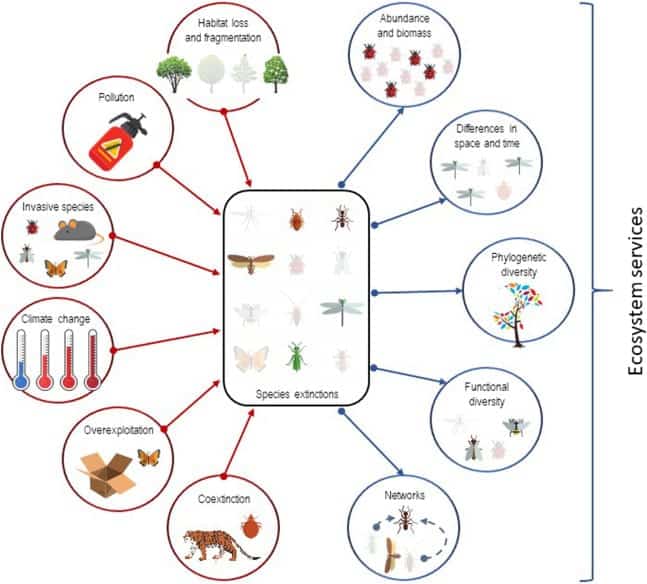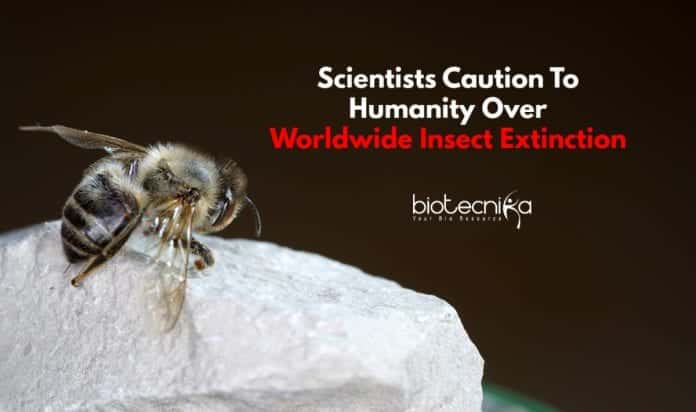Scientists Warn About Insect Extinction – Worldwide Insects Decline
Amid the battle against the COVID-19 pandemic, scientists have found that the human race is not the only one fighting. Researchers found that there has been a worldwide fall in insect numbers and scientists warn about insect extinction as the planet’s insects are also facing a crisis after accelerating rates of extinction.
A global group of 30 scientists which includes Dr. Matt Hill, the University of Huddersfield lecturer has highlighted the issue and to help halt the decline, they suggest practical steps that everyone can take. Practical steps such as leaving old trees, stumps and dead leaves alone, avoiding pesticides, mowing lawns less often, are some of the steps that can help in the process to decrease the rate of extinction.
Long-term decline
Dr. Hill, a specialist in aquatic environments said pollution and human impact on habitats mean that insects such as mayflies, dragonflies, beetles, other macroinvertebrates such as snails are in the long-term decline across the world. There is an essential contribution by the insects to the environment.
He added, “They form a critical component in the diversity of life, as they provide food for other animals and they can also
have a significant role in the functioning of freshwater ecosystems.”With scientists from all around the world, including South Africa, Finland, Columbia, the UK and Germany, Dr. Hill sought out to work with them. They collaborated on the two new articles and pooled their research into insect decline.
Their work puts out how factors such as the loss of habitats and pollution—including harmful agricultural practices, climate change have all contributed to species extinctions and declines in the insect population.
In the ecosystem, insects have many functions that cannot be replicated or replaced by any other innovation or technology. For instance, crops depend on insects to survive given the need for pollinations, they also contribute to nutrient cycling by playing their part in decomposition.

Credit: ScienceDirect
A nine-point plan that enables individuals to contribute to insect survival has been put out by the team behind the research and the new articles:
1. Allow nature to grow and feed insects, avoid frequent mowing of your lawn
2. Several insects need native plants to survive, plant native plants
3. Go organic and avoid pesticides, wherever possible
4. Old trees, stumps and dead leaves alone are home to countless species, leave them alone
5. Make ways to build a nest for insects by building an insect hotel with small horizontal holes
6. Carbon footprint must be reduced, reduce your own carbon footprint, the effects on insects is as much as other beings
7. Volunteer and support conservation organizations
8. Native species can be harmed if there is anything new or missing in the wild, do not release or import plants or living animals into the wild
9. Always look on the small side of life, be more aware of tiny creatures.
Distinguished Professor at Stellenbosch University, South Africa, Michael Samways says, “Locally, small groups of people can impact insect conservation, however, for a large-scale recovery, collective consciousness and a globally coordinated effort for species inventorying, monitoring and conservation are required.”






























